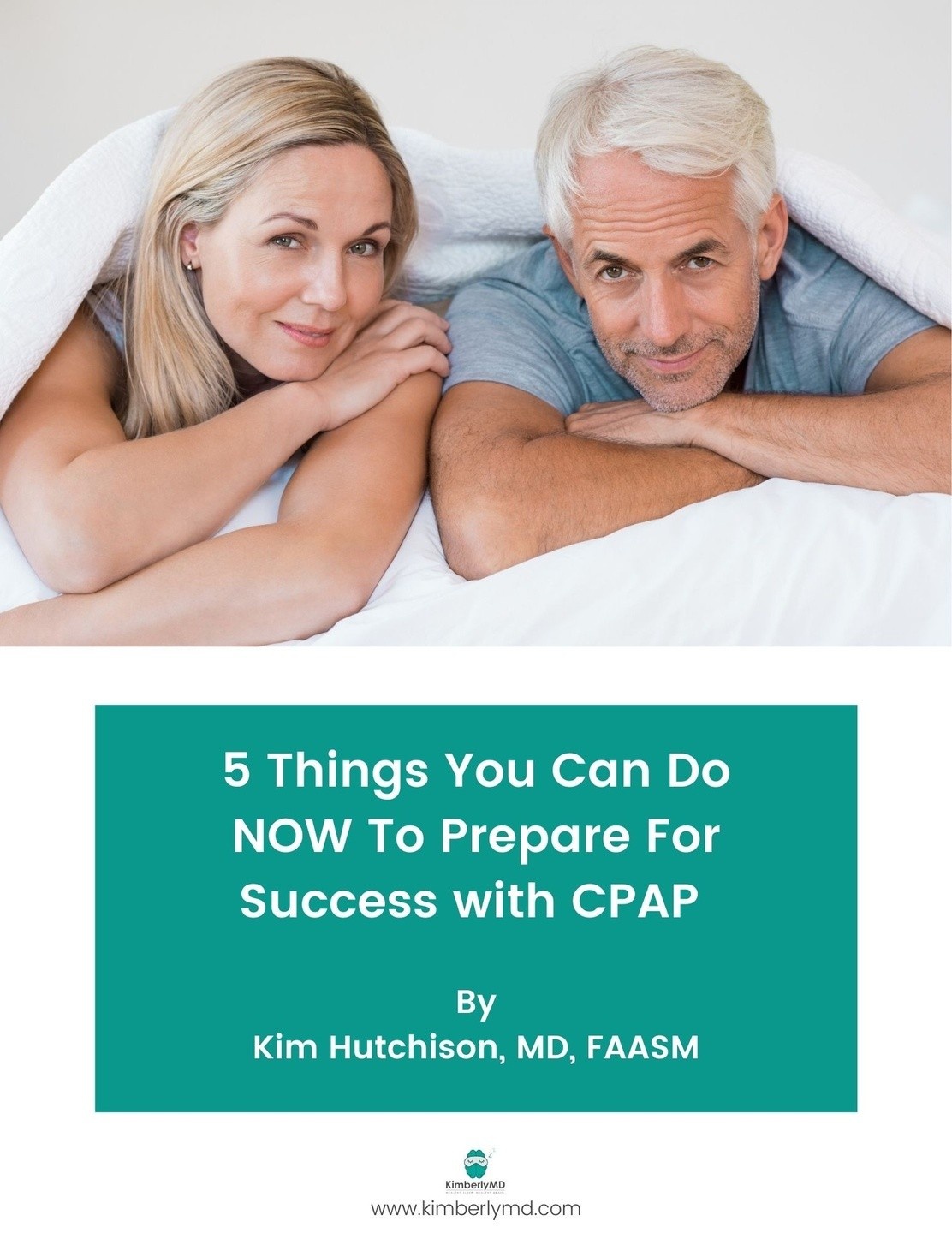Hey Sleep Warriors,
If you have a diagnosis of sleep apnea, I bet many of you had a home apnea test, or HAT, for short, to get the diagnosis. Well, you aren’t alone!
Home apnea tests are cheaper, easier, and more comfortable than in-lab polysomnograms (or PSGs), which require spending the night away from home hooked up to a bunch of wires.
With a large number of people out there that need sleep studies and long wait times to get into a lab, home apnea tests are quickly becoming the most common diagnostic sleep test for obstructive sleep apnea.
But are they accurate? Well…..it depends.
I’ll help simplify this issue. In part one of this two-part series on at-home sleep testing, I’m going to discuss 3 primary differences between at-home and in-lab sleep testing (besides the obvious difference of one being at home in your own bed and the other being more at a sleep center!)
- In the lab, brain waves are measured, which is called EEG and EEG measures whether you are asleep or awake as well as your sleep stages - like REM, or dreaming sleep. EEG also determines if sleep apnea is disrupting your sleep, or causing “arousals”. In at-home sleep studies, breathing events are scored only if there is an associated oxygen desaturation with it, while in the lab, a breathing event can be scored if it causes an oxygen desaturation OR if it disrupts your sleep by causing an EEG arousal. Because of this, in-lab sleep studies are generally felt to be more sensitive at picking up sleep apnea and a more accurate measure of the severity.
- In the lab, technologists are present throughout the night to be sure the signals are accurate. If the oximeter slips from your finger - no problem, the techs put it right back on. They can also help be sure you spend time in all different sleep positions, such as on your side and on your back, which can have different levels of apnea severity.
- CPAP treatment for sleep apnea can be started. If your sleep apnea is significant, most in-lab sleep centers will wake you up and start you on CPAP therapy. This hands-on treatment during your first night with therapy can really be helpful.
The question then becomes, who should have which study and when do the additional measurements of being in the lab actually make a difference in the diagnosis and treatment of your sleep disorder?
Stay tuned for next week when I will address this question in more detail, but the short answer is that if your home apnea test is negative for sleep apnea, but you have symptoms of sleep apnea (like sleepiness, loud snoring, or non-refreshing sleep), then I recommend you have an in-lab study. Because a home test can “miss” sleep apnea up to 25% of the time!
Thanks for being here, I’ll see you next week!



